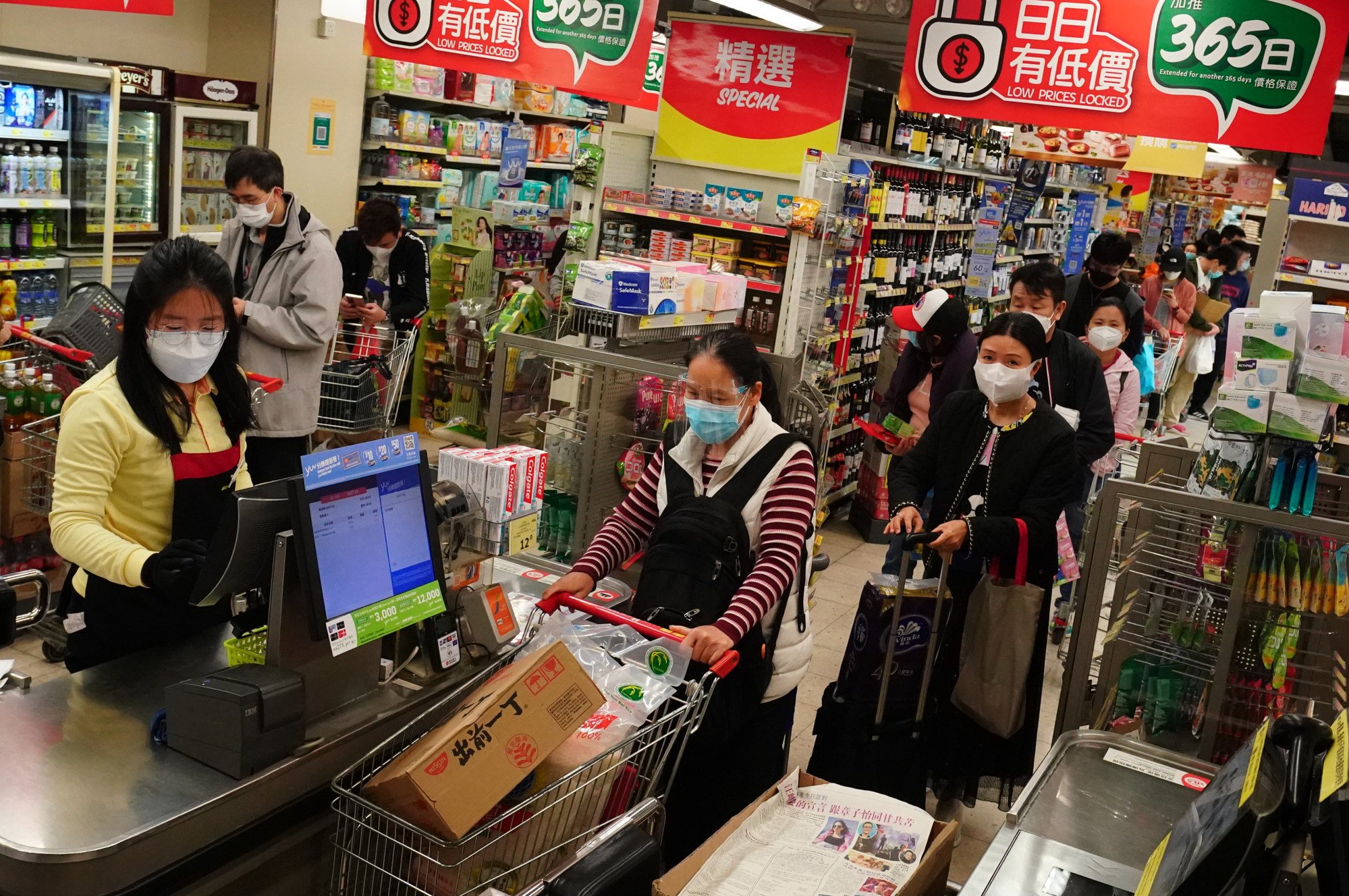
Self-checkout machines or human cashiers? Pros and cons of doing it yourself and why we shouldn’t say goodbye to real people
- Self-checkouts and self-ordering machines are everywhere in Hong Kong nowadays, from ParknShop and Watsons to McDonald’s and Fairwood
- I prefer real human interaction but don’t want self-checkouts to ever disappear completely. I just wish shops wouldn’t push them on us so hard
You either love them or hate them.
Self-checkout stations are now in every kind of grocery store and supermarket. Instead of having a real-life cashier tally your purchases, companies now encourage you to go the DIY method, scan the bar code of your goods and ring up the total without anyone’s help.
Some appreciate the convenience, efficiency and not having to wait in a slow line behind someone with an overfilled cart. After so much quarantine and self-isolation, a lot of people seem to like not having actual human interactions.
It’s easy to understand why companies like this trend, too. They can hire less people.

But many of us do enjoy the service of a clerk working the register and bagging everything afterwards. We don’t mind engaging face to face, saying “hi” and occasionally having the local staffer ask, “How do you cook with this Western vegetable fennel?”
In 2018, AS Watson Group set up self-checkout machines in all 220 of its health and beauty Watsons stores in Hong Kong; at the time, it also had the machines in more than 80 ParknShop supermarkets, one-third of the total number of stores in the city.
Self-ordering is becoming a norm at many fast-food restaurants too. Outlets from McDonald’s to Fairwood to Japanese curry shops rely on them.
Interestingly, overseas supermarkets are now rethinking this whole self-checkout strategy. In recent months, major American chains including Walmart, Wegmans and Costco all announced they are cutting back on self-checkout kiosks. In the UK, Booths said it is removing self-scanning machines from all but two of its 28 supermarkets.
It seems one of the reasons behind these moves is that when you let customers ring up the bill, some like to give themselves a five-finger discount. In other words, people are stealing stuff left, right and centre. All those savings from fewer workers are being offset by produce walking out the door unpaid.
It doesn’t help that shops make it so easy. I assume most theft is intentional. Surveys have noted that 15 to 20 per cent of shoppers admit to pilfering when they aren’t required to engage with any humans.

But losses are also racked up when folks neglect to scan properly, type the wrong code, or input the incorrect item – like keying in cheaper tomatoes but taking the premium ones.
I’m sure there are abuses here when it comes to self-checkouts but I suspect that shoplifting isn’t as big a problem as it is in other places. Hongkongers might fight over MTR seats but I think that, generally, most of us are upright citizens. We won’t take what doesn’t belong to us. Also, the nature of our busy and crowded shops means there’s less chance to swipe stuff.
Anyway, I don’t want self-checkouts to ever disappear completely. I just wish supermarkets wouldn’t push them on us so hard. How else do you explain assigning only one cashier on a busy weekend when the checkout line snakes down the length of an aisle?
Occasionally, there are times when it’s nice to be able to tune out, be antisocial, pick up the two or three items I need and not be bothered. But unlike this new generation, that’s not my normal state. Shopping for me is not staying in my bedroom and ordering stuff online.
My life is not so hectic that standing in line for five minutes to wait for a cashier will ruin my day.

